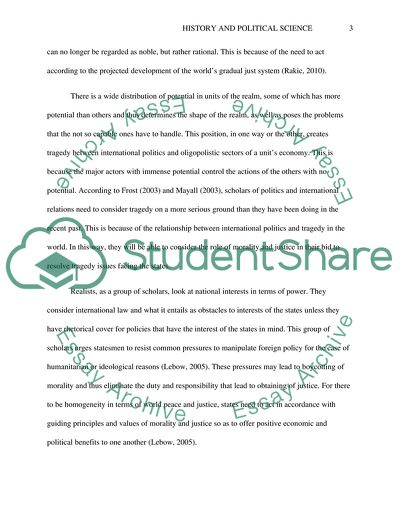Cite this document
(“Ethics and International Politics - 'What, if any role ought scholars Essay”, n.d.)
Ethics and International Politics - 'What, if any role ought scholars Essay. Retrieved from https://studentshare.org/history/1595629-ethics-and-international-politics-what-if-any-role-ought-scholars-and-practitioners-of-international-politics-envision-for-morality-justice-in-the-international-realm-of-the-political
Ethics and International Politics - 'What, if any role ought scholars Essay. Retrieved from https://studentshare.org/history/1595629-ethics-and-international-politics-what-if-any-role-ought-scholars-and-practitioners-of-international-politics-envision-for-morality-justice-in-the-international-realm-of-the-political
(Ethics and International Politics - 'What, If Any Role Ought Scholars Essay)
Ethics and International Politics - 'What, If Any Role Ought Scholars Essay. https://studentshare.org/history/1595629-ethics-and-international-politics-what-if-any-role-ought-scholars-and-practitioners-of-international-politics-envision-for-morality-justice-in-the-international-realm-of-the-political.
Ethics and International Politics - 'What, If Any Role Ought Scholars Essay. https://studentshare.org/history/1595629-ethics-and-international-politics-what-if-any-role-ought-scholars-and-practitioners-of-international-politics-envision-for-morality-justice-in-the-international-realm-of-the-political.
“Ethics and International Politics - 'What, If Any Role Ought Scholars Essay”, n.d. https://studentshare.org/history/1595629-ethics-and-international-politics-what-if-any-role-ought-scholars-and-practitioners-of-international-politics-envision-for-morality-justice-in-the-international-realm-of-the-political.


